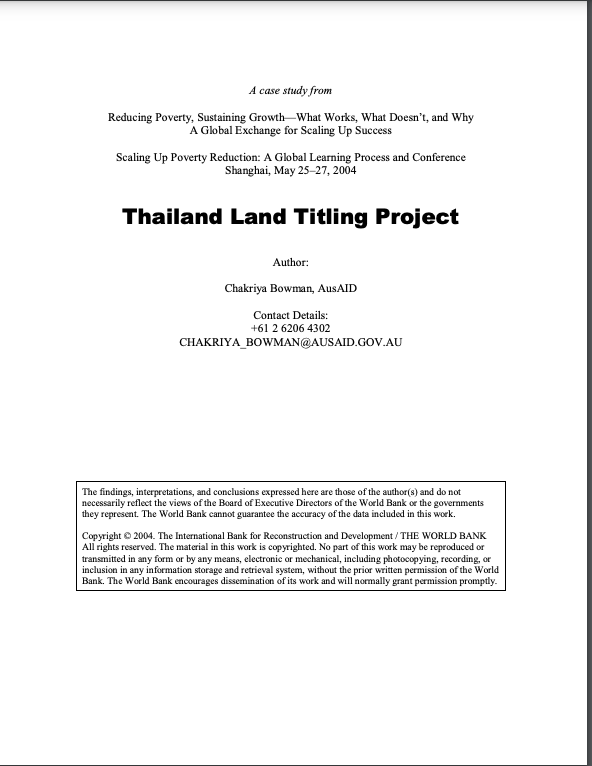Thailand Land Titling Project
The Thailand Land Titling Project is an outstanding success story of inter-agency cooperation and received the World Bank Award for Excellence in 1997. It was designed as a four-phase project over 20 years and will finish in 2004. The project partners the Royal Thai Government, the Bank, and the government of Australia provided funds and personnel, with the Australian Agency for International Development (AusAID) supplying technical assistance and training programs to the Department of Lands (Thailand).











